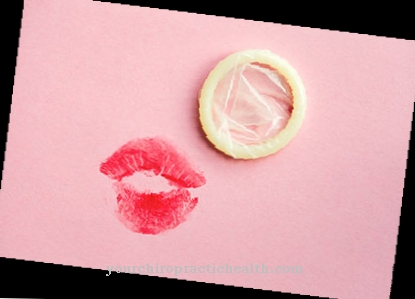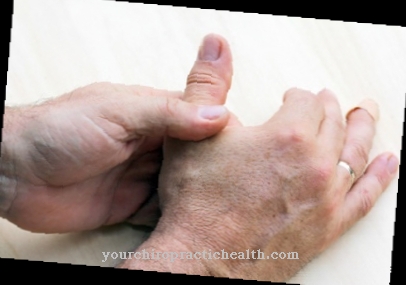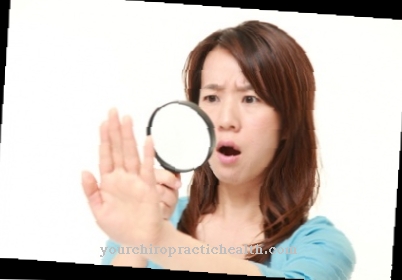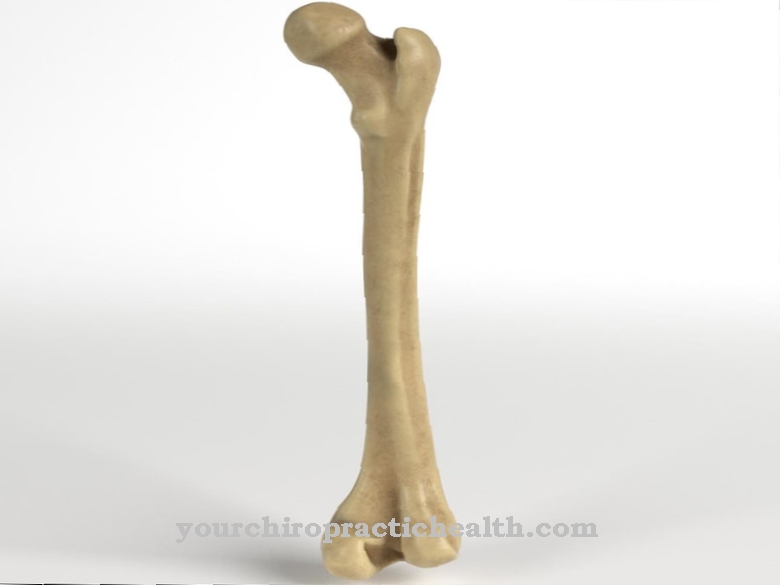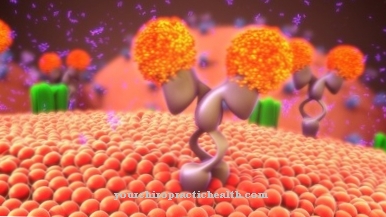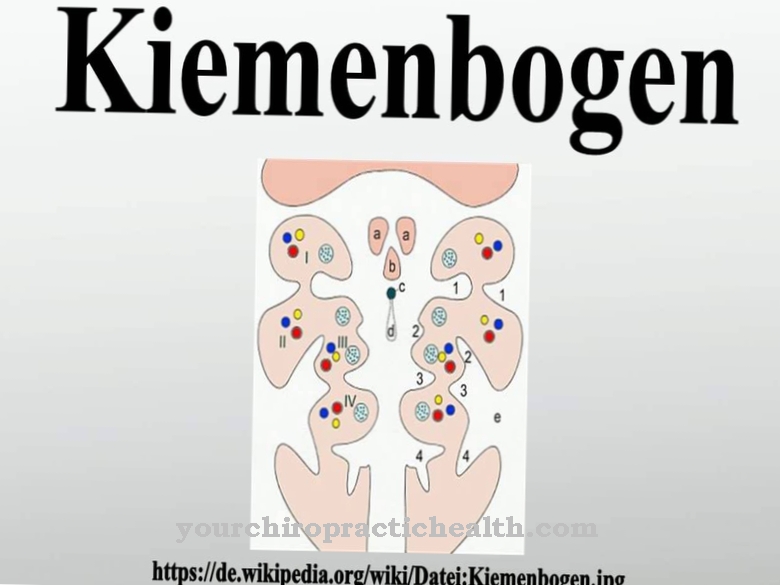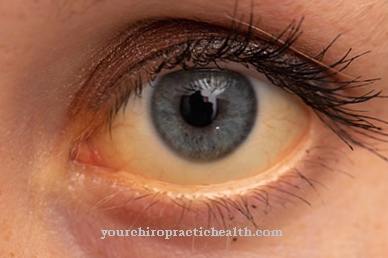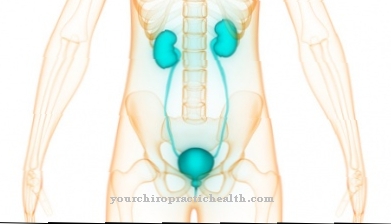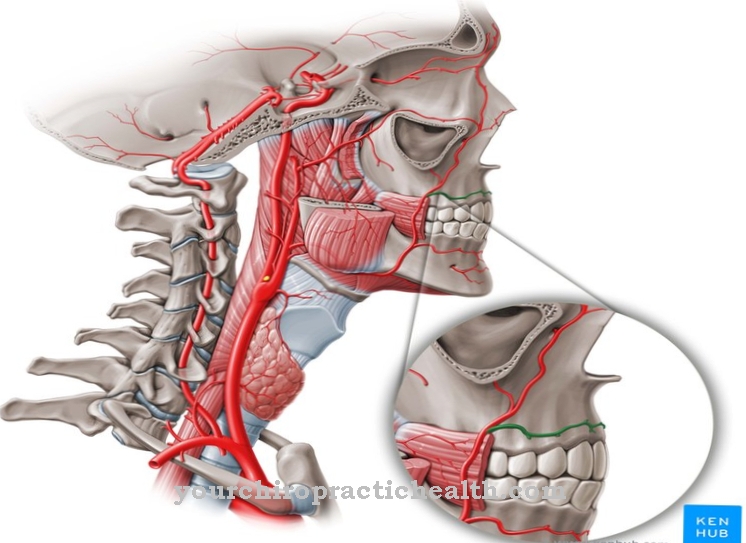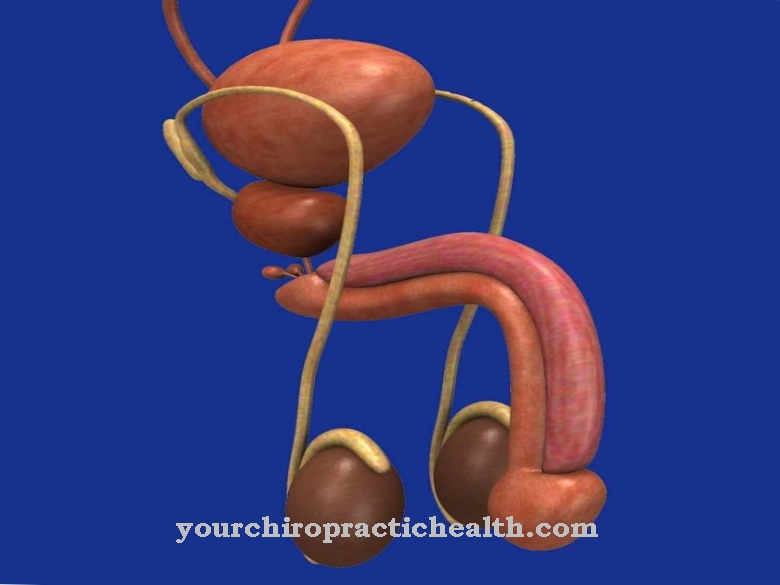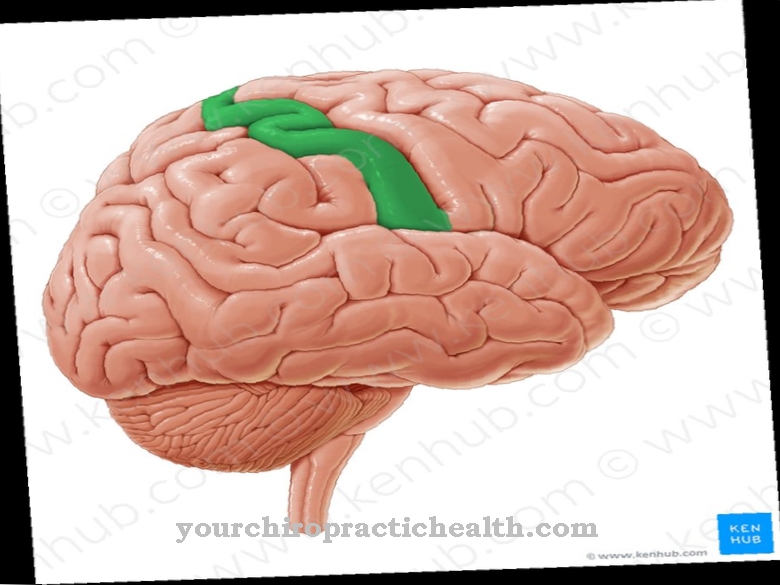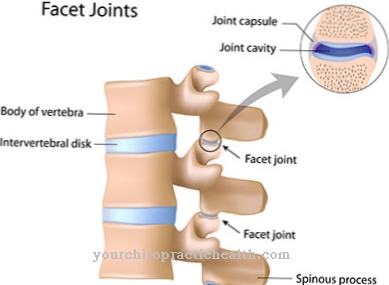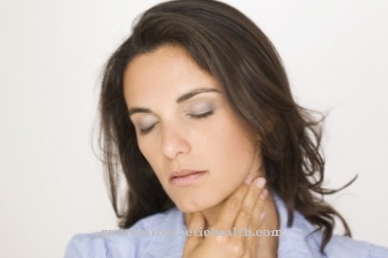Sudden dizziness can be harmless. However, if it occurs repeatedly and accompanied by other complaints, the Meniere's disease to think.
What is Meniere's disease?

In the Meniere's disease, also Meniere's disease called, it is a disease of the inner ear. It manifests itself in attacks of dizziness that last between 20 minutes and several hours.
These can lead to severe nausea with subsequent vomiting. There is also a reduction in the hearing ability of one ear as well as a feeling of pressure and ringing or ringing in the ears similar to tinnitus. Sometimes both ears can be affected.
Drop attacks are a special form of the disease. Here, the dizziness of Menière's disease is so pronounced that the patient loses his or her orientation in space and can therefore seriously fall.
causes
The causes of the Meniere's disease are largely unknown. The disease, which was described by the French doctor Prosper Menière at the beginning of the 19th century and named after him, occurs more frequently in affected families, so that the presumption of inheritance of certain deviations in the shape of the auditory canals as well as the organ of equilibrium and the cochlea favors the disease.
It is assumed that Menière's disease is triggered by a change in the fluid balance in the inner ear. The inner ear in turn consists of the organ of equilibrium and the cochlea, which are connected to one another via channels. The fluids endolymph and perilymph, which differ in their salt content, are located in these channels.
In Menière's disease, too much endolymph collects in the cochlea. It is not known whether this fluid is insufficiently absorbed by the body or whether too much is simply being produced.
Symptoms, ailments & signs
Menière's disease manifests itself in several symptoms that appear like attacks. Typically, the first attacks happen at night or in the morning. The most significant sign is dizziness. It comes suddenly and completely unsigned. It can only last a few minutes, but in some cases it can last up to several hours or days.
The affected person feels as if he is standing on a turntable and perceives his surroundings as spinning quickly. This can lead to nausea and vomiting. Often times it gets so bad that the patient has to lie down. In addition, at the beginning of the attack, noises in the ears and an uncomfortable pressure in the ear are noticeable, accompanied by hearing loss for low and medium-high tones.
Often only one ear is affected at first, but as the attack progresses the symptoms spread to the other ear. The symptoms of the disease repeat themselves at different time intervals. There can be days, weeks, months, or even years between attacks.
Sometimes there are several attacks at shorter intervals, followed by longer periods with no symptoms. Stress can increase the frequency of seizures. During a Menière attack, patients are usually pale and sweat profusely. Uncontrolled eye tremors (nystagmus) also occur in some cases.
Diagnosis & course
The Meniere's disease is generally diagnosed by the ENT doctor. Important clues are the symptoms that have occurred, such as ringing in the ears and feeling of pressure as well as dizziness, which the patient typically describes as "as if the ground were shaking" or "the environment was turning".
In addition, a hearing test is used to determine whether the patient is hard of hearing or has a hearing loss, especially in the low-frequency range. With special glasses, the Frenzel glasses, it can be proven whether the patient suffers from trembling of the eyes.
The tremors often make it impossible to focus on a fixed point in the room, which increases the dizziness.
The diagnosis of Menière's disease is confirmed when at least two attacks of dizziness have occurred in addition to the other symptoms.
The ringing in the ears and the feeling of pressure may persist through the seizures and worsen after each seizure. In Menière's disease, hearing also deteriorates to the point of complete deafness of the ear.
Complications
Menière's disease usually causes dizziness that persists. This can also lead to headaches and impaired coordination and concentration. In general, Menière's disease significantly reduces and limits the patient's quality of life. There is also paleness and disorders of balance or anxiety.
Those affected not infrequently suffer from tinnitus or from strong and loud noises in the ears. However, without treatment, hearing loss and, in the worst case, deafness can occur. It is not uncommon for those affected to sweat excessively and are severely restricted in their everyday life by the symptoms. The dizziness itself can lead to vomiting or nausea.
Meniere's disease is usually treated with bed rest and various medications. There are no particular complications or complaints. In some cases, however, those affected are dependent on a hearing aid. In most cases, Menière's disease does not affect life expectancy.
When should you go to the doctor?
Meniere's disease is characterized by recurring dizziness. If the person concerned repeatedly suffers from incomprehensible dizziness, he should consult a doctor. If the complaints lead to unsteady gait, general motor disorders or if the risk of injury and accident increases, a doctor is required. If the symptoms increase in intensity or if they occur at ever shorter intervals, you should see a doctor as soon as possible. In many cases, recurring dizziness that only lasts for a few minutes is underestimated.
Despite the apparently minor or only short-term impairment of the person concerned, a check-up by a doctor is urgently recommended. Nausea and vomiting are other signs of an existing health disorder. If there are balance problems or hearing impairments, a doctor is required. Noise in the ear, a feeling of pressure in the ear or impaired hearing should be examined and treated. If the person concerned suffers from emotional or physical stress, an increase in symptoms can be expected. Therefore, accompanying psychological support is often helpful to alleviate the overall intensity of the symptoms. A doctor should also be consulted in the event of persistent trembling of the eyelids, internal nervousness or restlessness. In the case of headaches, deficits in concentration as well as attention and perception disorders, a doctor's visit is necessary.
Treatment & Therapy
When treating the Meniere's disease the first thing to do is to find effective medication to dampen the seizures that occur for the patient. These include anti-nausea and vomiting agents. There are also drugs available that have an additional effect on the balance organ. Which drugs are effective must be tried out individually.
During an attack, the patient should stay in bed as much as possible in order to protect the balance organ and avoid a fall. In acute attacks, an improvement can be achieved through infusions that stimulate the blood flow to the inner ear. Due to the increasing impairment of hearing, it is necessary to use a hearing aid.
If the dizzy spells become unbearable and none of the medications provide sufficient relief, surgery to relieve the symptoms is possible. Saccotomy involves opening the inner ear to drain the fluid outwards. In addition, there are other interventions in Menière's disease, but these are rarely carried out or only after the patient has been completely deaf.
You can find your medication here
➔ Medicines for balance disorders and dizzinessOutlook & forecast
The prognosis for Meniere's disease is favorable in most patients. If you seek medical care, drug treatment is initiated. In many cases this can already lead to freedom from symptoms. Nevertheless, with the discontinuation of the drugs, health irregularities can develop again at any time. It is therefore necessary to check individually how the further course will show or whether long-term therapy is absolutely necessary.
Surgery is performed on some patients. In this, the functional activity of the ear is optimized and thus the hearing ability is improved. This intervention is associated with risks and can lead to long-term health impairments in the event of disorders or complications. If the disease progresses unfavorably, hearing loss occurs. Without medical treatment, on the one hand, the risk of accidents increases and, in addition, it can lead to deafness. In one treatment, hearing is significantly improved through the use of a hearing aid.
When making the prognosis, it must be taken into account that the adversity and stress of the disease in everyday life increases the risk of developing a secondary disease. Often patients suffer from a mental illness in the further course. This has a significant influence on the quality of life and can lead to a significant deterioration in the general condition.
prevention
Active prevention against the Meniere's disease does not exist due to the unexplained cause of the disease. Affected patients can only reduce the force of their seizures by immediately taking medication to reduce dizziness, nausea and vomiting. In addition, coffee, nicotine and alcohol as well as too much salt should be avoided if possible so as not to provoke attacks of Menière's disease.
Aftercare
Menière's disease leads to various complications and complaints in those affected and must therefore be treated and examined by a doctor in any case. Early detection and treatment of the disease has a very positive effect on the further course, so that the person affected should contact a doctor as soon as the first symptoms appear. As a rule, Menière's disease cannot heal itself independently.
In most cases, people are very dizzy. This occurs for no particular reason and often does not go away on its own. Furthermore, vomiting or severe nausea can occur, so that the quality of life of the person affected is generally significantly reduced. In many cases, the disease also leads to hearing loss, so that children in particular suffer from developmental problems.
The development itself is slowed down, so that the child suffers from deficits and intellectual complaints at a later age. The symptoms can mainly occur in stressful situations and often lead to depression or other psychological upsets. As a rule, however, the life expectancy of the person affected is not reduced by this disease.
You can do that yourself
With Menière's disease, the person affected has various options for self-help. As a rule, stimulants such as alcohol, coffee or nicotine should be avoided in order not to provoke attacks of dizziness. Salty food can also have a negative effect on the course of the disease and should also be avoided.
In the event of an acute attack, the symptoms can be relieved with the help of medication. It makes sense to always have these drugs on hand. If the person concerned loses consciousness due to Menière's disease, an emergency doctor should be called. Until the emergency doctor arrives, the patient's breathing should be checked and the patient should be placed in a stable side alga. If you have hearing problems, wearing a hearing aid is suitable. This can prevent a further sudden hearing loss caused by loud noises. Furthermore, calm and even breathing in stressful situations has a very positive effect on the disease. However, strenuous and stressful situations should generally be avoided.
In the event of an acute attack, the person concerned should get into a lying position and calm down. Massage of the head or temples can also help reduce nausea or dizziness.

.jpg)
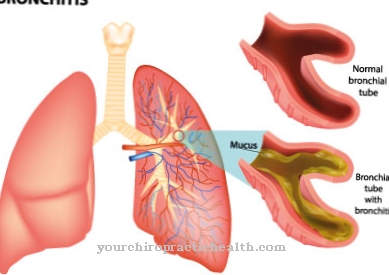
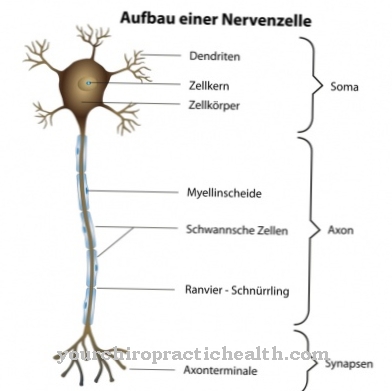
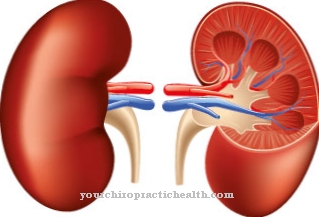



.jpg)
